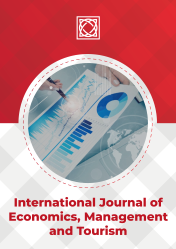DIGITAL NOMADS AS CONTEMPORARY FORM OF BUSINESS TOURISM
Keywords:
travel, wok, vis, MICE, freelancerAbstract
Business tourism is a term used to describe all travel that results directly from work duties or indirectly in the performance of work-related activities. This includes activities related to daily work duties, but also travel for corporate or organizational meetings, conventions and congresses. Digital nomad is a term used to describe people who use telecommunication technologies in their work and live a nomadic life. Digital nomads work from different countries, in different spatial conditions such as cafes, libraries, recreational vehicles, etc. The subject of this paper is the digital nomads as contemporary form of business tourism. The paper presents review of research concerning digital nomads and business tourism. For the purpose of the paper, a research methodology and secondary data sources have been used by consulting literature, studies, statistical data and official web pages of institutions concerning digital nomads and business travel. An analysis and review of different types of nomads and destinations offering digital nomad visa in selected Mediterranean countries has been made, based on a systematic evaluation of the current content of relevant literature using methodology of content analysis.

